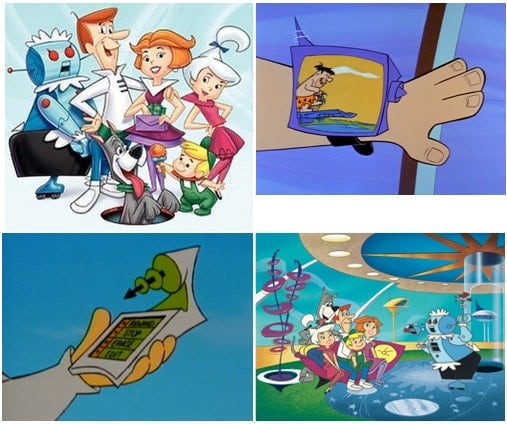50 years ago, the famous series “The Jetsons” predicted how our lives would look in 2063. So, what do we have already and what comes next?
The Jetsons were the futuristic compliment to Hanna-Barbera’s the Flintstones. It had a catchy theme tune and a whole bunch of wacky ideas about what 2063 would look like.
The show was a product of its era, one of the space race and a near delirious belief in the inexorable progress of technology. Its predictions, therefore, are of the utopian variety — the Jetson family live in a world where “housework” consists of pressing a button to switch on a Roomba-like hoover, and they still complain about the effort. But what else, apart from said robot, did they get right? And what did they get very, very wrong?
The first season of The Jetsons aired in 1962, with a run of 24 episodes. While a couple of seasons were added later on in the 80s, with more awareness of what impact computers would have on our lives, here’s what was surprisingly accurate about the first run:
Flatscreens everywhere
George may sit down of an evening with a physical newspaper (who remembers those?), but he watches his favourite shows on a flatscreen TV. Indeed, nobody just makes phone calls any more — everyone uses some kind of video phone.
Portable media devices
We’re not going to claim that The Jetsons invented iPhones or iPads, but in many scenes it’s not uncommon to see characters walking around watching what look to be some kind of small TV-like device. We’ll give them this one.
Interactive media
George uses a “televiewer” to catch up on the news — a wall-mounted flatscreen which displays a newspaper-like page, but with images that move and text that updates. It’s almost a tech version of the newspapers from the Harry Potter universe, which puts it close to modern apps like Flipboard.
Household robots
Rosey the maid — a talking, humanoid robot on wheels who acts both as housekeeper and nanny — is one of the main characters. We probably won’t have to wait until 2063 for these kinds of robots to become a normal sight in homes across the developed world, especially with ageing populations who’ll need care.
Runaway environmental degradation
It is implied that humanity lives in the sky because the ground has become too polluted to support terrestrial life. If there’s one thing we do know about the times we live in, it’s that climate change is threatening existing ecological systems and the consequences could lead to mass extinction of many animal and plant species, along with the desertification of formerly lush savannah or other temperate grasslands. In 2063 we will have fled this horror for the skies above, a bit like the town of Springfield moving a mile down the road after its garbage debacle.
Nanotechnology
When George arrives at work his car folds down into a briefcase for him to carry inside. In a future with objects made of tiny nanobots, such a car is theoretically possible. Until then, here’s an F1 car sculpted on a nano scale.
And there are the things that weren’t so on the money:
Regular space travel
In the episode “The Good Little Scouts”, George takes Elroy and his scout trip on what is implied to be a rather routine camping trip to the Moon (with hilarious consequences, of course). While space travel will undoubtedly have advanced by 2062, it seems overly optimistic to think that visiting the Moon will be quite that easy by then.
The working week
George Jetson works a nine-hour week. That’s three hours a day, three days a week. One day we might see a world with so much material abundance that even a blue-collar worker like George has such a short week, but as our methods of production have improved we’ve just ended up making more stuff instead of ramping down our hours. The dream of shortening the working week remains, sadly, just out of reach, no matter what some think tanks might argue.
Flying cars
The Jetson family “car” is a kind of bubble-topped spaceship. In real life, the flying car has struggled to get beyond the prototype stage, despite the attempts of many different manufacturers. You can go buy one right now, if you want. It’s just unlikely that you’ll be able to get full use of it.
We can forgive them missing out on the internet, too. That one took almost everyone by surprise (well, not everyone).

